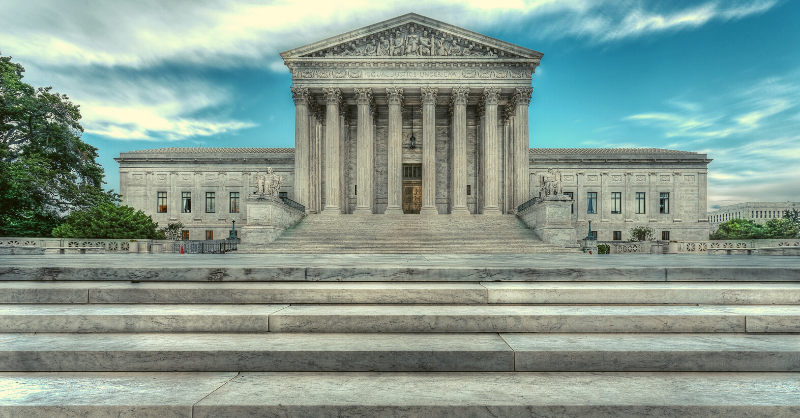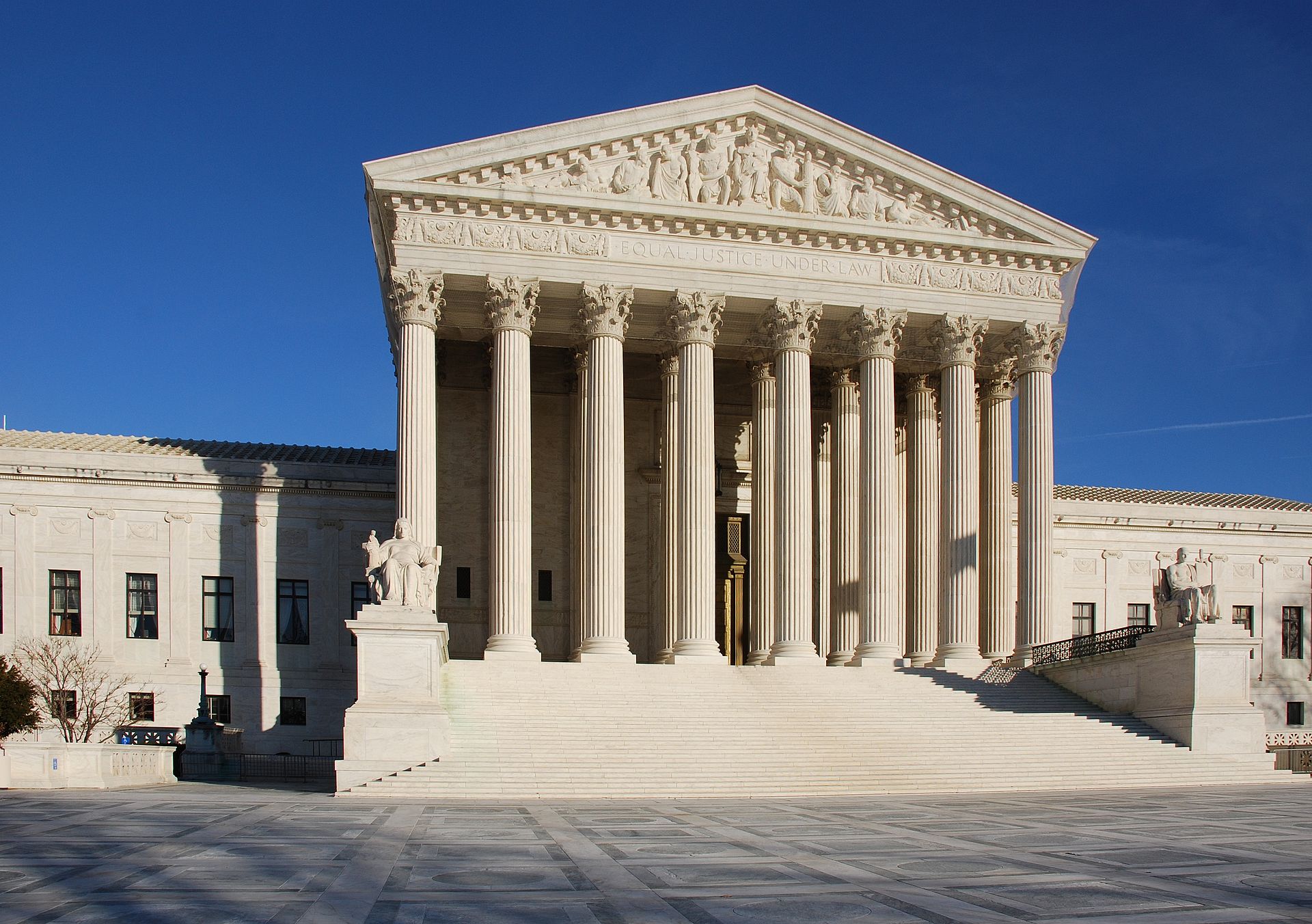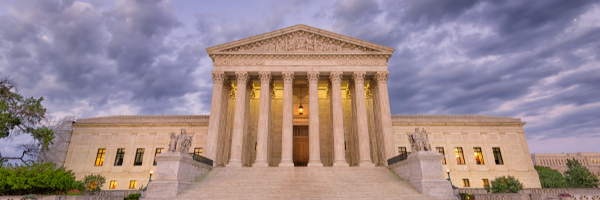Tag: SCOTUS
-
U.S. Supreme Court to decide whether candidates can sue over election law

On Oct. 8, the U.S. Supreme Court heard oral arguments in Bost v. Illinois State Board of Elections, a case over whether a candidate, U.S. Rep. Michael Bost (R), has the legal standing to challenge an Illinois law allowing mail-in ballots postmarked by Election Day to be counted up to 14 days after Election Day. …
-
SCOTUS issues decisions overturning Chevron, limiting SEC adjudication proceedings scope, and more

The U.S. Supreme Court issued its final decisions for the October 2023 term on July 1, 2024. The Supreme Court issued decisions in nine cases related to administrative law during the term. Some of the term's administrative state-related SCOTUS rulings limited the authority and influence of administrative agencies. Notably, SCOTUS ruled against judicial deference to…
-
SCOTUS dismisses case challenging FDA's regulatory actions related to abortion pill

The U.S. Supreme Court on June 13, 2024, unanimously held in Food and Drug Administration v. Alliance for Hippocratic Medicine that the plaintiffs lacked standing to challenge the Food and Drug Administration’s (FDA) regulatory actions related to approved use conditions of mifepristone—a drug used in medication abortions. The FDA approved the drug mifepristone in 2000…
-
SCOTUS takes up challenges to ATF rule, judicial review of immigration decisions

The United States Supreme Court in April 2024 agreed to hear two cases in the 2024-2025 term concerning a U.S. Bureau of Alcohol, Tobacco, Firearms and Explosives (ATF) rule and judicial review of certain decisions made by immigration officials. SCOTUS on April 22 agreed to hear Garland v. VanDerStok—a case challenging the ATF’s authority to…
-
SCOTUS upholds Consumer Financial Protection Bureau funding structure

The U.S. Supreme Court on May 16, 2024, held 7-2 in Consumer Financial Protection Bureau v. Community Financial Services Association of America, Limited that Congress statutorily authorized the Consumer Financial Protection Bureau (CFPB) to draw money directly from the Federal Reserve System. The court ruled that the CFPB’s funding structure therefore does not violate the…
-
SCOTUS accepts 43 cases this term; 20 scheduled for argument so far

The Supreme Court of the United States (SCOTUS) accepted 43 cases for the 2023 term as of November 7, 2023. Of those cases, 20 have been scheduled for argument, and one case was dismissed. The Court has seven cases scheduled for its December sitting. Among these is McElrath v. Georgia, which concerns the double jeopardy…
-
SCOTUS to hear case challenging Chevron deference

The U.S. Supreme Court on May 1, 2023, agreed to hear Loper Bright Enterprises v. Raimondo—a case that could curb or clarify future applications of Chevron deference by the federal courts. Chevron deference is an administrative law principle that compels federal courts to defer to a federal agency's reasonable interpretation of an ambiguous or unclear…
-
Moore v. Harper petitioners, respondents submit briefs regarding SCOTUS' next steps after North Carolina's highest court re-hears case

The parties in Moore v. Harper filed supplemental briefs with the U.S. Supreme Court (SCOTUS) on March 20 at SCOTUS' request after the North Carolina Supreme Court announced it would re-hear the case. Joseph Ax at Reuters wrote, "If the justices decide they no longer have jurisdiction, they could dismiss the case without issuing a ruling." Moore…
-
SCOTUS applies major questions doctrine to limit agency authority

The U.S. Supreme Court on June 30, 2022, invoked the major questions doctrine in a decision that limits the Environmental Protection Agency’s (EPA) authority to regulate greenhouse gas emissions. The ruling in West Virginia v. Environmental Protection Agency (EPA) could limit the efforts of other federal agencies to engage in broad policymaking not specifically authorized…
-
SCOTUS accepts two new cases for its 2022-2023 term

The Supreme Court of the United States (SCOTUS) accepted two cases for argument during its October 2022-2023 term on April 25. To date, the court has agreed to hear arguments in 11 cases next term. Reed v. Goertz concerns a split between the U.S. circuit courts on when the statute of limitations begins to run…

